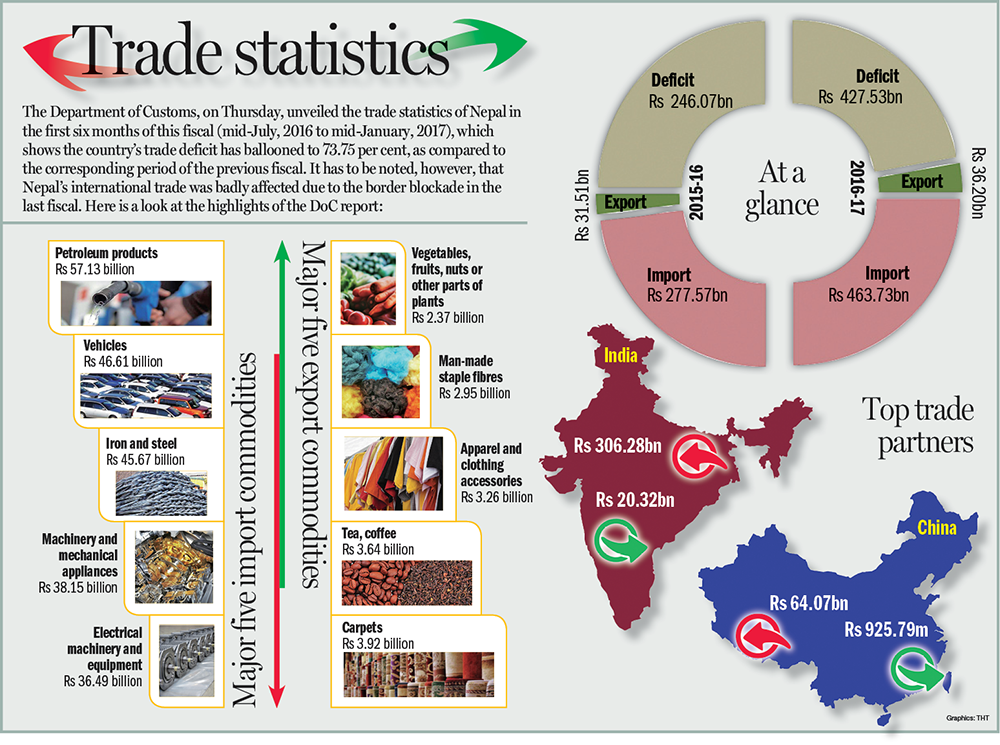Enhancement of competitive edge must, says commerce minister
Kathmandu, July 29
Stakeholders have stressed on the need for collaborative efforts of the private sector and the government to enhance the production base of the country to cope with the ballooning trade deficit.
Addressing a programme organised by Nepal Freight Forwarders’ Association (NEFFA) to mark 23rd Cargo Day here today, Commerce Minister Meen Bahadur Bishwakarma said that joint effort of the government and private sector is a must to enhance competitive edge of the country.
“To be competitive in production, the government and the private sector have to work together,” said the commerce minister. “Our private sector is capable of delivering results if the government provides them with necessary facilitation like contextualisation and harmonisation in the laws, and prompt administrative services.” Commerce Minister Bishwakarma pledged to focus on enhancing the competitive edge of the country to lure more foreign and private investment in the production sector.
While the country’s production base has weakened due to political instability, uncertainty of policies, rampant power cuts, frequent strikes, donation drives and labour unrest, among other issues, in the past, Nepal has been trying to improve the investment climate. Due to the aforementioned reasons the production cost in the country skyrocketed, as a result of which industries closed down because imported goods became cheaper than locally produced goods, as per the minister. “Gradually, we started sending our youths to Middle East and turned to the remittance-based economy, through which we are covering the import cost of goods and services.”
Minister Bishwakarma further highlighted that remittance is not a sustainable source to maintain the country’s balance of payments and that Nepal requires a robust production sector for employment generation and to achieve the desired growth.
Also addressing programme, Commerce Secretary Naindra Prasad Upadhyay urged private sector to play a constructive role in addressing one of the structural problems of the economy, that is, the alarming trade deficit.
“The Ministry of Commerce has also been supporting domestic producers to explore and identify markets to sell their products,” said Upadhyay, adding, “The current challenge is weak production base rather than the market.”
Stating that the country’s import is a staggering 13 times higher than the total value of exports, Commerce Secretary Upadhyay urged exporters to focus on value addition and designing products as per the market trend to reap benefits from exports.
Hari Bhakta Sharma, president of Confederation of Nepalese Industries (CNI), shed light on some key bottlenecks for supply-side growth. According to him, weak infrastructure, administrative hassles, rent-seeking, outdated legal provisions and the mindset of the government to doubt the private sector players are the major factors that are distorting the country’s production base.
“The country has competitive strength in various areas, and capitalisation of such strengths, like in tourism, hydro energy, herbal and high value agricultural crops, could bring massive transformations for economic development,” said Sharma.
He also emphasised on the need for the government to translate its words into action to see the actual results ‘because government’s plans and programmes are hardly implemented’.






